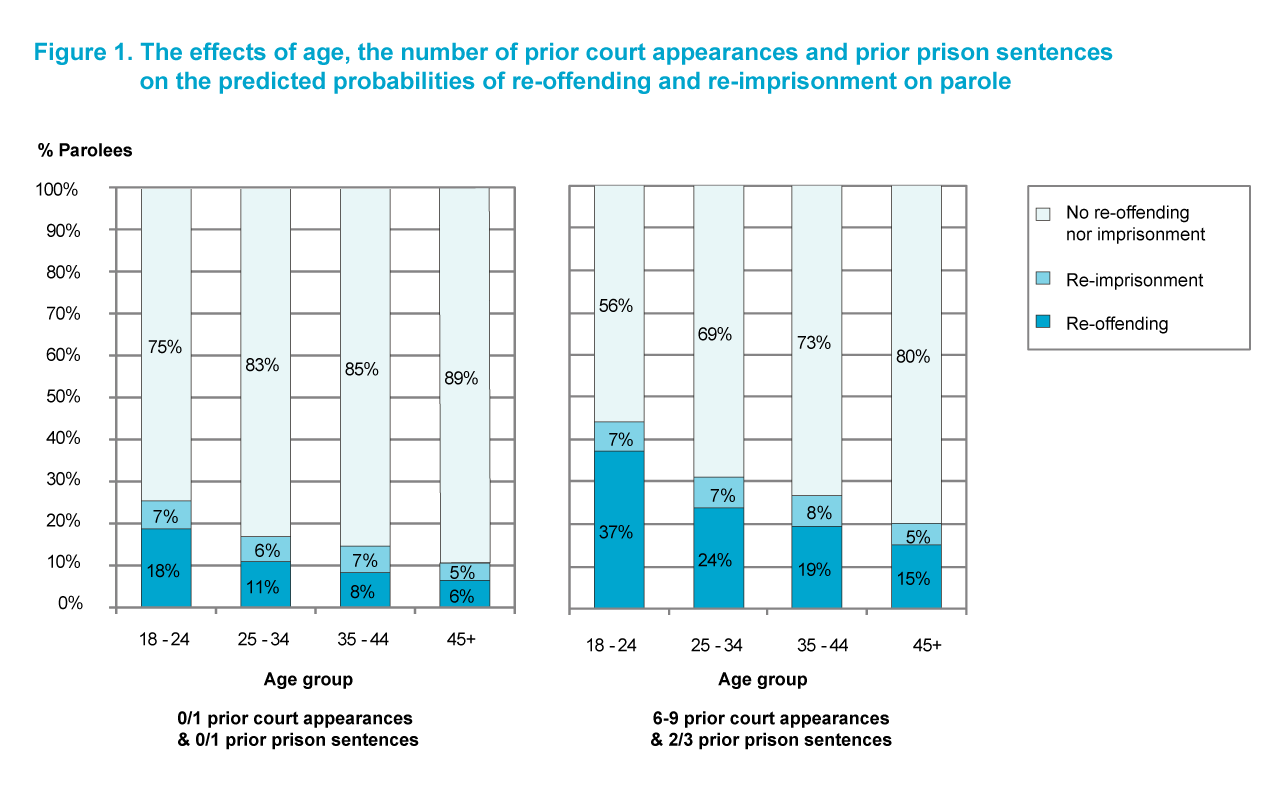Summary
Aim
To measure the rate of re-offending on parole and identify the predictors of both general and violent offending on parole. To describe the types of offences committed on parole.
Method
The analysis was based on 9,604 offenders released on parole in 2010 or 2011. Multinomial logistic regression was used to identify demographic and criminal history characteristics independently associated with re-offending or
re-imprisonment while on parole.
Results
Just under 61 per cent (60.8%) of parolees neither re-offended nor were re-imprisoned during their parole period. About twenty-eight per cent (28.4%) of the sample re-offended on parole. A further 10.8 per cent were re-imprisoned on parole without having first re-offended. Approximately 7 per cent (7.1%) of the sample committed a violent offence on parole. Parolees were more likely to offend on parole if they were male; Indigenous; young; had spent less than 180 days in prison (during the current episode); had a higher Level of Service Inventory - Revised score had a non drug offence as their principal offence; had six or more prior court appearances, had been imprisoned before; or had a prior conviction for drug use and/or possession. The correlates of violent re-offending on parole were very similar but also included prior conviction for a serious violent offence. Those who re-offended on parole committed a broad spectrum of offences, including: break and enter, assault, possess illicit drugs, receive/handle proceeds of crime, drive while licence disqualified, breach apprehended violence order and property damage.

Conclusion
Offending on parole is less common than previous studies have suggested. Future research should focus on three issues: whether it is possible to improve the accuracy of the parole risk assessment process; whether post release supervision/support reduces the risk of re-offending following release from prison; and whether offenders released to parole are less likely to re-offend if released to parole by the State Parole Authority than if released on parole by a court."